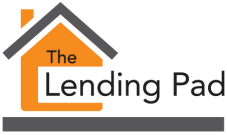Last month I noted the surprisingly strong inflation number released in the middle of July. Shortly after sending that article out we received news of a surprising fall in the unemployment rate right back to the 4.0% it was at ahead of last year’s lockdown.
Now, we have additional new information to digest. But instead of accelerating the pace and increasing the magnitude of the interest rate rises outlined by the Reserve Bank in May, it has slowed the process.
The country has gone back into lockdown to fight the Delta variant of Covid-19 and again we are seeing a negative impact on the New Zealand economy. But will things be as bad as they were during the seven locked-down weeks of last year, and will the bounce on the other side be as strong? In particular will we see another version of house prices on average falling 3% and then soaring over 34%? No.
This time around our attitudes and fears are sharply different from last time. We have adjusted our businesses to better handle lockdowns (though for some this is not possible), and we have knowledge of what happens when lockdowns end. We catch up on spending delayed using money saved up and because we are intent on reclaiming our lost consumer enjoyment. Revenge spending some have called it.
The reduction in spending this time per week will probably be similar to last time. But indicators and anecdotes so far for the housing market are less negative than back then and I have measures of many of them in the monthly survey of real estate agents which I run with REINZ.
In the first lockdown a gross 35% of agents said they were seeing FOMO - fear of missing out. That is a very low reading. This time the measure is 71% - the highest since 76% in March this year. Last lockdown a net 17% of agents said that prices were falling in their location. Now, a net 59% say they are rising.
In lockdown last year 50% of agents said that a shortage of listings was the big concern of buyers. Now 79% say it is. Back then 48% said buyers were worried about their incomes. Now only 12% cite that as a major concern.
These and many other measures tell us that through lockdown the real estate market is likely to remain strong. In fact, heading into lockdown there were improvements for almost all of the measures which I track from my various monthly surveys of agents, mortgage brokers, and people generally.
Thus, even if Auckland should experience an extended Level 4 lockdown, house prices are likely to hold up, especially as the already severe shortage of vendors may be aggravated by some choosing to hold their properties back in anticipation of a repeat bounce.
But it pays to note that aside from these specific market dynamics, there are other factors which suggest the market will not surge, much as the approach of Spring is likely to produce increased activity and prices.
First, there is no fresh 0.75% cut in interest rates as happened last year. Instead, the Reserve Bank has clearly indicated that it plans raising interest rates and has merely delayed the increase because of the timing of lockdown being announced less than 24 hours before they were due to give their update.
Second, there is no removal of Loan to Value Ratio restrictions as happened last year. Instead the minimum deposit for investors is now higher than it was ahead of last year’s lockdown at 40% from 30%. In addition, banks are having to halve the amount of low deposit lending which they can undertake.
Third, average house prices are 31% higher than in February 2020. Affordability is a problem for many buyers, effectively taking them out of the market.
Fourth, the level of buying from investors has fallen away since the March 23 announcement on tax changes affecting property investors.
Fifth, the Reserve Bank is being given new weapons to use against borrowers – investors in particular one suspects. They will within a month be able to apply debt to income (DTI) restrictions, set the maximum ratios banks can use for debt servicing as a proportion of income, and enforce minimum interest rates to use when calculating debt servicing costs.
Sixth, and related to this point, the Reserve Bank is now officially required to consider the impact of its policies on the government’s goals of dissuading investors from buying existing properties and improving sustainable house prices. The Reserve Bank Governor has already stated that he feels prices are above their sustainable levels.
Seventh, the government will be well aware of what happened with house prices the last time lockdown ended. My strongly expressed view has been that if house price inflation is above 10% come the March quarter of next year, the government would be highly likely to double-down on its March 23 tax changes. Perhaps they would remove ability to deduct other expenses when calculating taxable rental property income.
If the lockdown or ending of the lockdown brings a fresh market surge, any new tax change could come this side of Christmas.
Listing reasons why the pace of house price inflation will slow is relatively easy. But we should not forget that there are some big factors in play suggesting the pace of rise will nonetheless remain firm for the next 6-12 months. One factor is that it may take some time for the Reserve Bank’s interest rate increases to affect the bulk of borrowers. Another is that the number of properties listed for sale is now almost 30% below levels pre-Covid.
There are also firmly rising construction costs to consider, shortages of sections, and growing frustration by people trying to get a property built which is causing many to switch back to looking at listings of existing properties.
Uncertainty regarding how quickly house prices rise on average when lockdown ends is high, just as uncertainty is also high regarding the speed with which house price inflation adjusts to the growing number of other factors coming into play.
The period of greatest house price increases has been and gone and one way or the other, the pace of growth is going to slow in the next 12 months, with a period of flattish prices on average after that, assisted by net migration numbers turning negative and house supply booming.
For investors with a long timeframe and who have not relied upon high debt, this will pose few problems. But there might be some who have paid a lot recently and geared to the hilt, who could struggle should interest rates in particular rise 0.5% - 1.0% more than the 1.75% pencilled in by the Reserve Bank.
Go to www.tonyalexander.nz to subscribe to my free weekly “Tony’s View” for easy-to-understand discussion of wider developments in the NZ economy, plus more on housing markets.
By Tony Alexander



